| | | | | | | Presented By PhRMA | | | | Vitals | | By Tina Reed ·Jun 01, 2021 | | 🛫 Axios is bringing local news to a city near you! Axios Local is coming to: Atlanta, Austin, Chicago, Columbus, Dallas, Philadelphia, Nashville, and Washington, D.C. Learn more here! Today's word count is 1,036, or a 4-minute read. | | | | | | 1 big thing: The race to prevent the next pandemic | 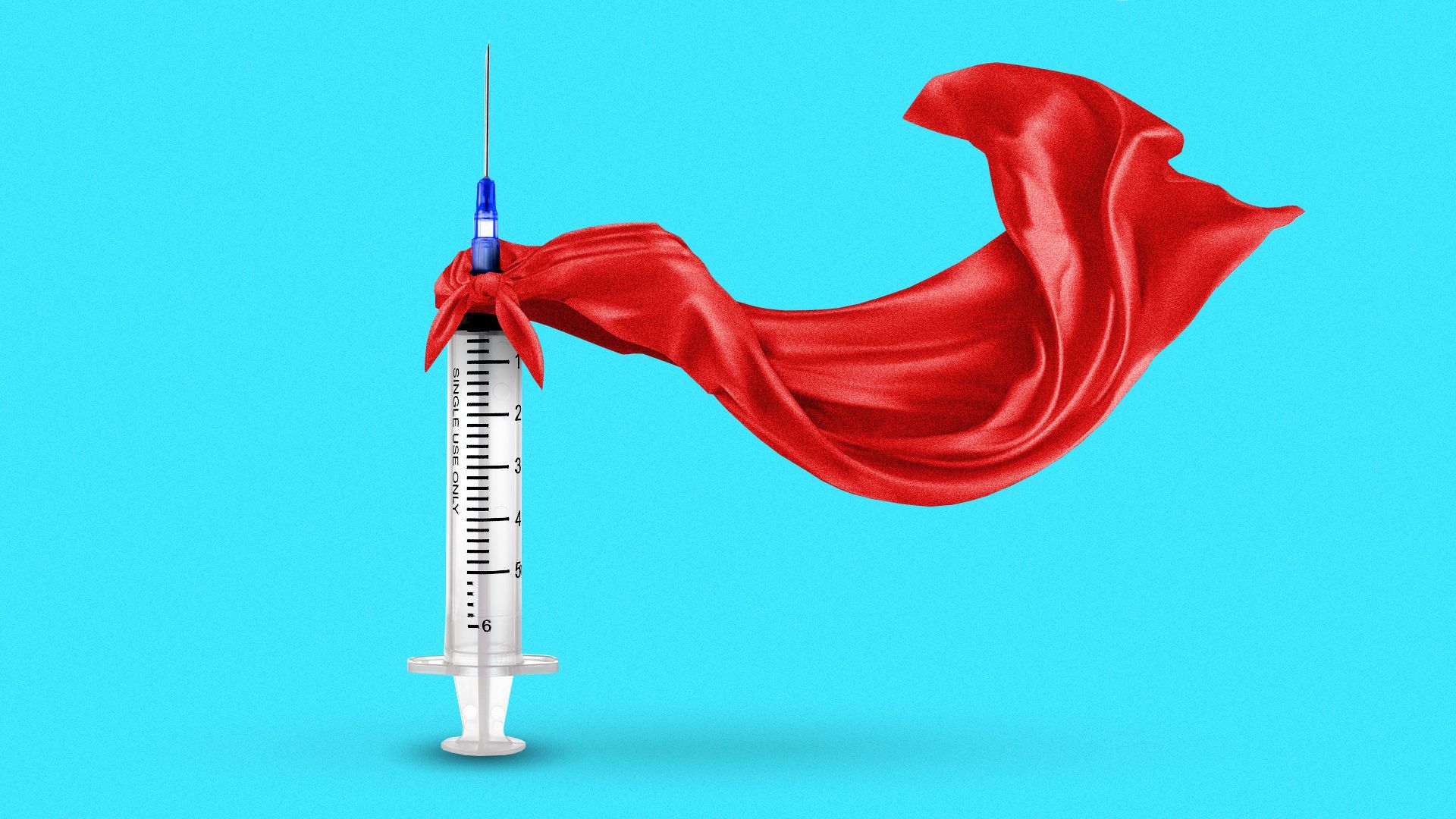 | | | Illustration: Annelise Capossela/Axios | | | | New science is breathing fresh life into the idea of a vaccine that works against all coronaviruses, including ones that could cause future pandemics, Axios' Caitlin Owens reports. Why it matters: No one wants to do the last year over again. But the road to a universal coronavirus vaccine is filled with hurdles, and there's no guarantee that coronaviruses would cause the next global pandemic. - "I'd hate to have us get all dressed up for the wrong party," said Jim Mayne, vice president of science and regulatory advocacy at PhRMA.
State of play: Scientists have been attempting for years to make a universal flu vaccine, and have yet to be successful. But some experts say making a universal — or a pan-coronavirus vaccine — may be easier, especially given all that's been learned over the last year, and it's gaining attention from researchers. - The NIH announced funding for projects related to pan-coronavirus vaccines in November, and two papers recently published — one in Nature and one as a preprint — have been sources of optimism for the idea.
- Not only have we've learned more about coronaviruses in the last year, "we have technologies that make vaccine development much easier now than in the past," said Amesh Adalja, a senior scholar at the Johns Hopkins Center for Health Security.
- If we do find a universal coronavirus or influenza vaccine, "it'd be something you had on the shelf ... so as soon as you see the first inkling of an outbreak, you can be months and months ahead of time," NIAID director Anthony Fauci told Axios.
Go deeper. |     | | | | | | 2. The hurdles to a universal vaccine | 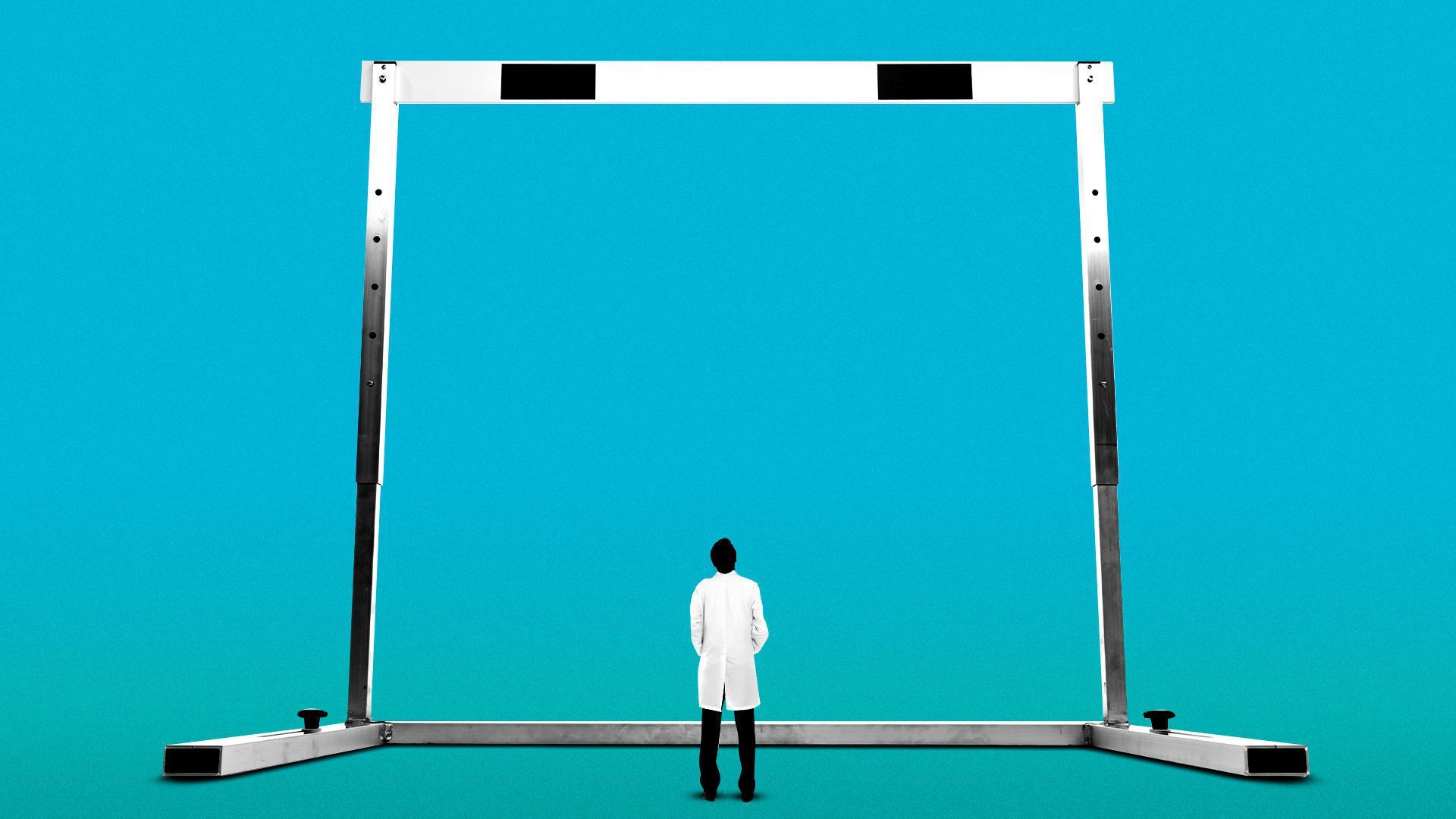 | | | Illustration: Aïda Amer/Axios | | | | There are plenty of hurdles in the race to create a universal coronavirus vaccine. Among them: there's still a long way to go with the science and incentives are needed (read: money) to get pharma behind it, Caitlin writes. Big picture: The further into the development pipeline a coronavirus vaccine is, the more expensive it becomes to advance. - "A lot of promising vaccines never make it past Phase 1 clinical trials ... because there's no incentive for pharmaceutical companies to sponsor a Phase 3 trial, much less go through all the effort to bring something to market," said Angela Rasmussen, a virologist at the Vaccine and Infectious Disease Organization.
- "This is going to need huge investments upfront to really overcome those barriers," she said.
Reality check: The U.S. government's financial de-risking of the COVID vaccine development made investing attractive and feasible for manufacturers, both logistically and financially. But future investment is unclear. - "There is a perverse incentive or disincentive for pharma to come up with a pan-coronavirus vaccine," said Corey Casper, CEO of the Infectious Disease Research Institute, adding that drug companies make more money the more shots they sell.
- And manufacturing complex vaccines is expensive. "The main market for vaccines is going to be governments," former FDA commissioner Mark McClellan said. "This is the kind of thing you'd want to subsidize industry into supporting."
Go deeper: WHO chief calls for global pandemic preparedness treaty |     | | | | | | 3. World anxiously awaits America's vaccines | 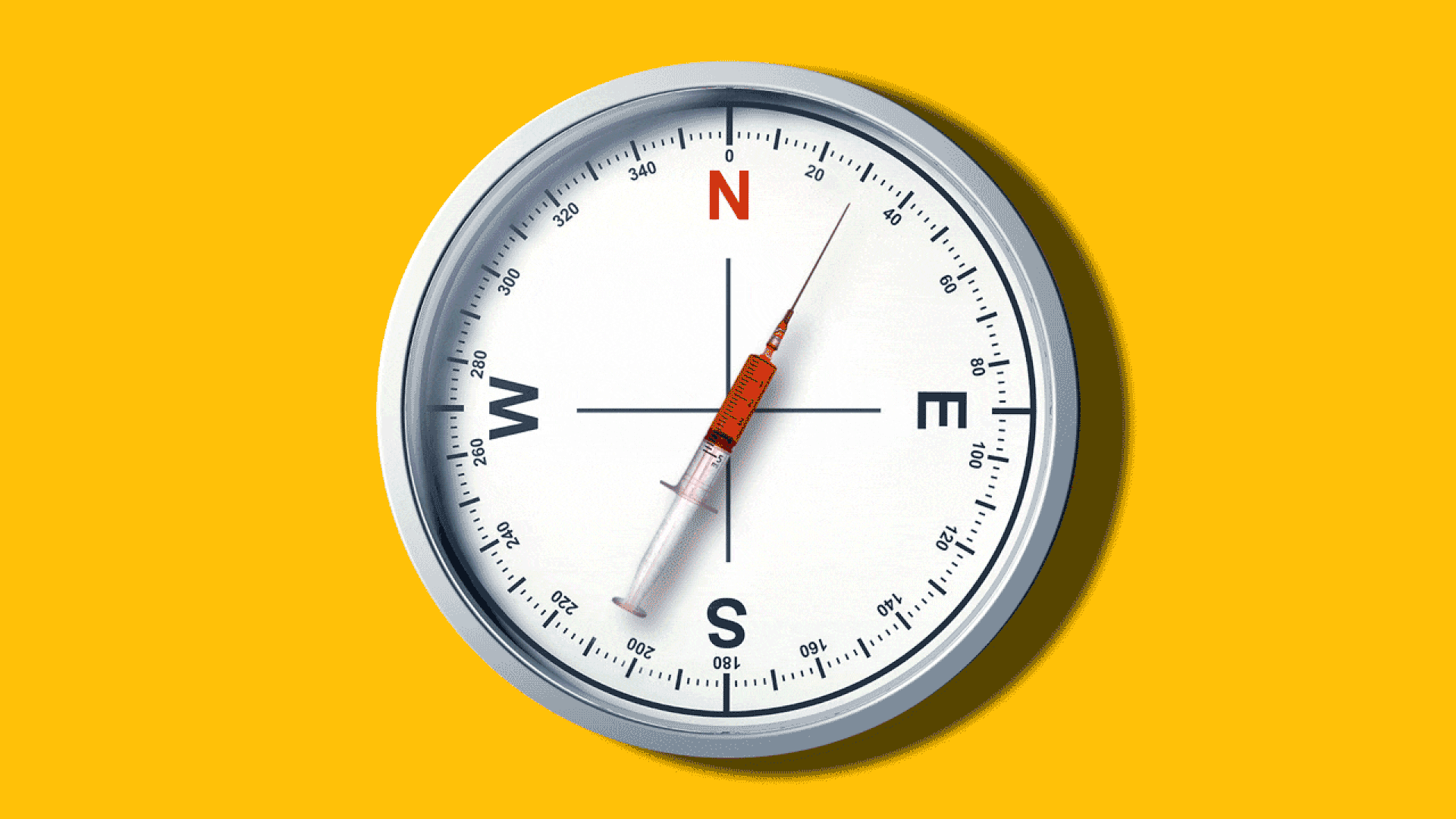 | | | Illustration: Annelise Capossela | | | | The U.S. is about to pivot from hoarding vaccines to sharing them globally, and countries around the world are trying to secure their places in line, Axios' David Lawler reports. Why it matters: President Biden has promised to donate 80 million doses by the end of June. But the White House hasn't said how it will distribute them. State of play: The U.S. is currently second only to China in terms of vaccine production, but had until recently been the only major producer to keep virtually its entire supply at home. Zoom in: Facing a fast-unraveling domestic crisis fueled in part by the pandemic, Colombian Vice President Marta Lucía Ramírez traveled to Washington last week with an urgent request: access to some of the 80 million doses. - She's not alone. Such requests have come in from all over the world, but countries in the Americas have been particularly frustrated with Biden's unwillingness to share up to now.
The first decision Biden has to make is whether to send doses to individual countries, share in bulk through the WHO-backed COVAX initiative, or — as White House officials have indicated is most likely — pursue some combination of the two. The big picture: 80 million doses is only a sliver of America's supply, and a fraction of the global need. |     | | | | | | A message from PhRMA | | We are focused on our mission: saving lives | | | 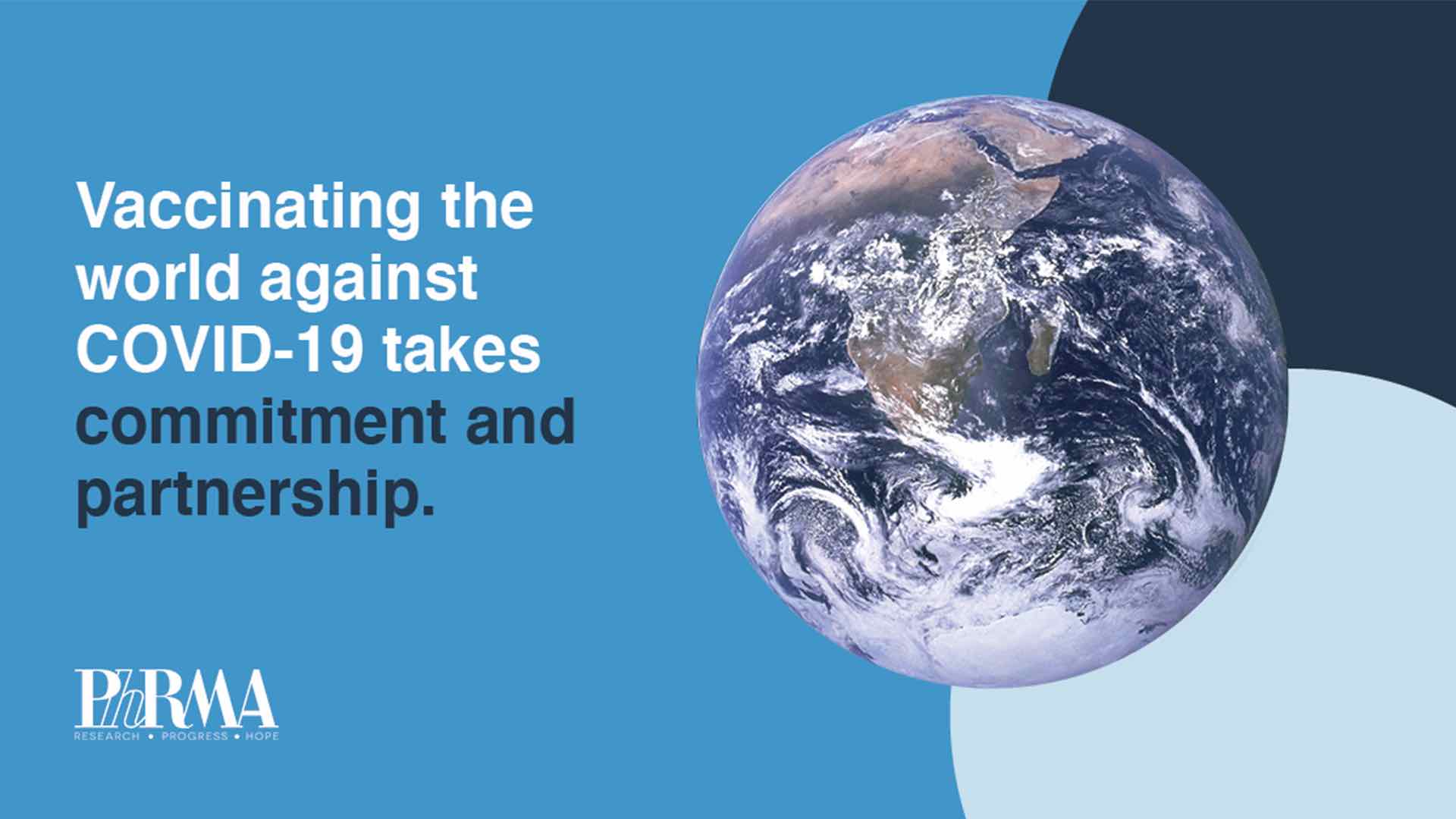 | | | | We're not just talking about vaccines. Manufacturers are working to deliver 11 billion vaccine doses in 2021 alone. We have constructive ways to deliver vaccines, continue to innovate and lower the cost of medicine. That is our focus, day-in and day-out and that work continues. | | | | | | 4. Vaccine disparities tick up |  Income and other socioeconomic factors seem to be driving bigger disparities in coronavirus vaccinations than race, Axios' Marisa Fernandez writes from CDC data released Friday. The big picture: In counties with the highest social vulnerability, only about 50% of residents have been vaccinated — compared to 60% in the least vulnerable counties. - There are a lot of ways to measure vulnerability, and racial and socioeconomic inequities are closely linked.
- Still, counties' income levels tended to correlate more closely to lower vaccination rates than their populations of color, the CDC found.
|     | | | | | | 5. Global heat deaths linked to climate change | 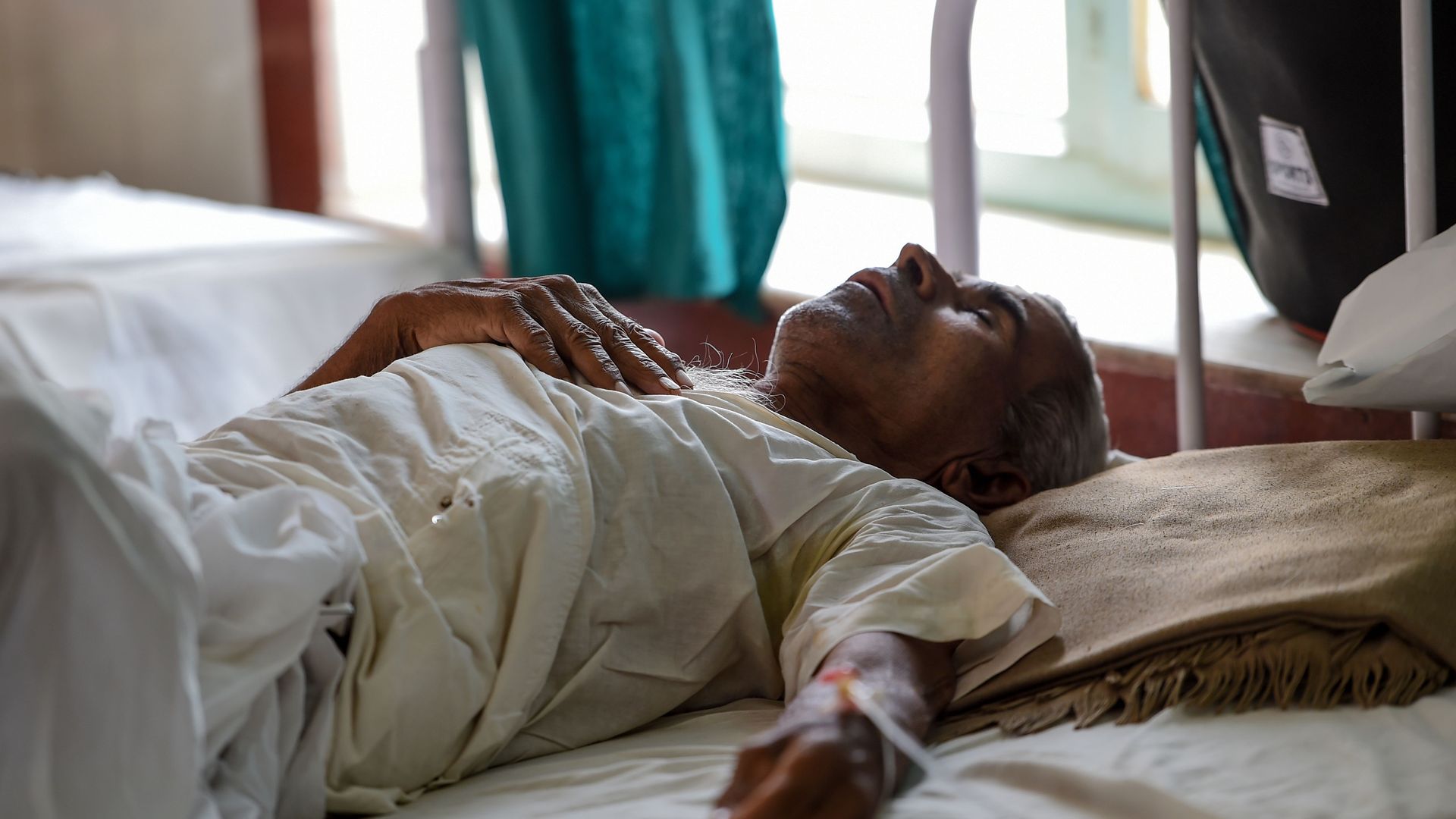 | | | An Indian patient lies on a bed at a government hospital after suffering heatstroke, in Churu, Rajasthan during a heatwave in 2019. Photo: Money Sharma/AFP via Getty Images | | | | More than one-third of heat deaths each year can be directly linked to climate change, according to a study published Monday in the journal Nature Climate Change. Why it matters: The findings require global actors to do more to "minimize the public health impacts of climate change," Axios' Ivana Saric writes. The big picture: "[S]cientists say that's only a sliver of climate's overall toll — even more people die from other extreme weather amplified by global warming such as storms, flooding and drought — and the heat death numbers will grow exponentially with rising temperatures," the Associated Press noted. |     | | | | | | 6. While you were weekending ... |  | | | Illustration: Aïda Amer/Axios | | | - Biden's $6 trillion proposed budget calls for money for a national family and medical leave program, ACA subsidies and upticks in global health spending, Associated Press reports. It does not, notably, include money for a public option, the New York Times writes.
- Chronic underfunding, long hours and staff shortages were already chipping away at global health systems. But the stressors of the pandemic have led record numbers of health care workers considering quitting the industry, CNBC reports.
- The British government is considering requiring all health care workers to get a COVID-19 vaccination, Reuters reports.
- Johnson & Johnson asked the Supreme Court to weigh in on a $2 billion verdict against it related to claims the company's talc products. caused ovarian cancer among some consumers, the Associated Press writes.
|     | | | | | | A message from PhRMA | | We are focused on our mission: saving lives | | |  | | | | We're not just talking about vaccines. Manufacturers are working to deliver 11 billion vaccine doses in 2021 alone. We have constructive ways to deliver vaccines, continue to innovate and lower the cost of medicine. That is our focus, day-in and day-out and that work continues. | | |  | | The tool and templates you need for more engaging team updates. | | | | | | Axios thanks our partners for supporting our newsletters.
Sponsorship has no influence on editorial content. Axios, 3100 Clarendon Blvd, Suite 1300, Arlington VA 22201 | | | You received this email because you signed up for newsletters from Axios.
Change your preferences or unsubscribe here. | | | Was this email forwarded to you?
Sign up now to get Axios in your inbox. | | | | Follow Axios on social media:    | | | | | |










No comments:
Post a Comment